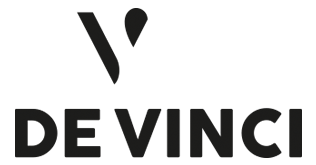About this resource
Welcome to the “Europe is us! Decoding European politics”!
The European Union, a unique political and economic entity, is a key player on the world stage – but it’s not just a foreign affair.
It is a decisive level of power on our national and local political scenes.
This two-hour course takes you deep inside the EU, revealing how its institutions work, the policies it implements and the impact these have on member states and European citizens alike.
With the 2024 European elections just a few weeks away, it’s important to grasp what’s at stake in this major democratic moment.
The course aims to shed light on what it means to vote in this context, highlighting the importance of every vote in the future direction of the Union.
We are Europe!
Prerequisites: None
Duration: 2 hours
Language: EN
Media type : article, video, podcast, animated infographic, interactive quiz
Accessibility: subtitled videos, podcast transcriptions, downloadable summary sheets
Additional resources: bibliography and sitography
Pedagogical information
MOOC objectives :
- Describe the workings and responsibilities of the institutions of the European Union.
- Correlate European Union policies with their implications for Member States and citizens.
- Assess developments in the European Union since its creation.
Specific objectives :
Chapter 1: From global to local: the challenges of June 9, 2024
- Situate the various 2024 issues in the context of the European elections.
- Identify the interdependence and cohesion between geopolitics, the Green Deal and the rule of law to understand their mutual influence on our national current affairs. Europe is a political construction, a level of power that interacts with other levels and authorities: national, regional and local.
Chapter 2: Institutions, processes and mechanisms
- Analyze the structure and specific features of the “institutional triangle” (Commission, Council of the EU, Parliament).
- Distinguish the role and function of institutions through the legislative process, and the interventions of other players: lobbyists, advocates, experts, etc.
Chapter 3: The Brussels bubble, EU political dynamics
- Describe EU policies and legislation in various fields.
- Demonstrate the complexity of the EU’s political dynamics.
Chapter 4: Historical trends and outlook
- Indicate the various developments in the EU (over the last 5 legislatures – 1999/24).
- Describe the European Parliament and the different political families and define European democracy. Show that the Parliament also reflects macro developments (retreat of the center, challenges from the extremes, responses to the 21st century).
Target skills :
- Analyze the workings of the institutions of the European Union.
- Assessing the impact of European Union policies.
- Synthesize historical and current developments in Europe.
Contents
MOOC We are Europe! Decoding European politics - All chapters
Contenu embarqué
2-hour MOOC to understand the issues at stake in the European elections of June 2024
To access this open resource, please log in or register
